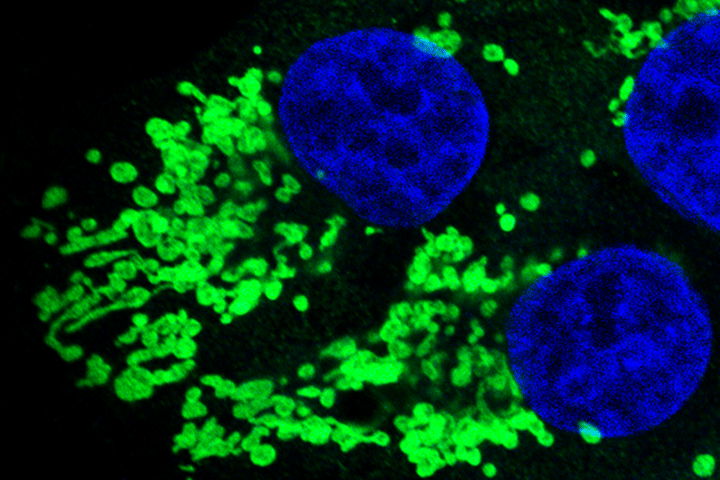GENERATE Trial Expands Eligibility

Courtesy of Dana-Farber Cancer Institute.
If you have a first-degree family member (parent, sibling, or child) with pancreatic cancer, knowing your own risk of developing the disease just got a little bit easier—the innovative GENERATE Study has expanded its eligibility parameters.
With a dismally low five-year survival rate for locally advanced and metastatic disease coupled with the fact that the majority of patients are diagnosed too late for potentially curative surgical intervention, a highly promising way to positively affect pancreatic cancer mortality is to identify those at highest risk of the disease, says Sapna Syngal, M.D., M.P.H., who is leading the study at the Dana-Farber Cancer Institute (Boston). “This is a study that can help someone right now,” says Syngal, who serves as Director of Research, Center for Cancer Genetics and Prevention and Director, Gastrointestinal Cancer Genetics and Prevention Clinics at Dana-Farber. “By following really well-thought-out surveillance protocols we can potentially prevent pancreatic cancer or detect it early in these susceptible individuals. Pancreatic cancer is deadly and this is one way we can save lives.”
Despite incredible interest and enthusiasm from the scientific community, patients, and their providers, initial enrollment in GENERATE, which stands for GENetic Education, Risk Assessment, and Testing, was below what researchers expected. Expanding eligibility solved the issue. “We enrolled so many people even during a pandemic, which surprised all of us,” says Syngal. “Enrollment is ongoing and we are sure we will get to 500 participants.” Those 500 participants translate to about one to two people per family.
The collaborators involved in the GENERATE Study are Dana-Farber Cancer Institute, MD Anderson Cancer Center (Houston), Johns Hopkins (Baltimore), UC San Diego Health, and Mayo Clinic (Rochester, Minnesota). The beauty of the study is that you don’t have to live near one of these centers to find out your risk, Syngal emphasizes.
About Expanded Eligibility
GENERATE is aimed at healthy people with a family member who has been diagnosed with pancreatic cancer. “The goal is to teach these individuals about their risk of pancreatic cancer, learn about genetic testing and the benefits, and get them through the genetic testing process if they choose,” explains Syngal. “It involves a simple blood test, and if we find out participants carry a gene mutation, we help them get enrolled into surveillance protocols with the goal of preventing pancreatic cancer.”
When the study first opened, eligibility was confined to those 18 years or older with a first- or second-degree relative with a diagnosis of pancreatic cancer who carried a germline mutation in a gene associated with pancreatic cancer. These genes include APC, ATM, BRCA1, BRCA2, CDKN2A, EPCAM, MLH1, MSH2, MSH6, PALB2, PMS2, STK11, or TP53.
The new eligibility requirements clearly open the door to more individuals. New eligibility includes those 18 years or older with simply a first-degree relative with a diagnosis of pancreatic cancer. First-degree relatives are an individual’s parents, siblings, or children. Eligibility for second-degree relatives remains the same as before.
“What’s clear is family members want to know their own personal risk, and genetic testing for pancreatic cancer patients is not being done routinely despite national guidelines. That’s a major reason why we expanded,” says Syngal.
Ease of Participation
One of the big reasons GENERATE continued enrollment during the COVID-19 crisis remains one of its strongest draws: it’s simple, done in the privacy of your own home via the internet and a mailed-in saliva sample for testing. Genetic education is done via video. An in-person genetic session before getting genetic testing is not necessary, and all participants will be given information on local genetic counseling and support services. Genetic testing is provided free of charge, as is online education about genetic testing. Participants must also be willing to answer a set of four questionnaires over the course of 15 months.
One of the biggest obstacles to genetic testing is that it has traditionally been offered only at major cancer centers. “Not everyone lives near a major cancer center and has easy access to genetic testing,” says Syngal. “The GENERATE Study really addresses that issue, which is very important because it lets us know if making genetic testing more accessible can really result in more people wanting testing, getting testing, and learning more about their inherited risk.”
The Importance of Germline Testing
The association between inherited germline mutations and a more than tenfold increased risk for pancreatic ductal adenocarcinoma (PDAC) has been demonstrated in several studies. “What’s clear is that a discussion about genetic testing needs to happen at or shortly after a patient is diagnosed and then doctors should discuss genetic testing and surveillance for relatives at risk,” Syngal says. If that genetic testing shows a pathogenic mutation, relatives who are at risk could greatly benefit from prevention and surveillance strategies that help reduce the risk of pancreas and other cancers, she adds.
The National Comprehensive Cancer Network guidelines recommend that all pancreatic cancer patients should undergo genetic testing for inherited genetic mutations, regardless of family history.





